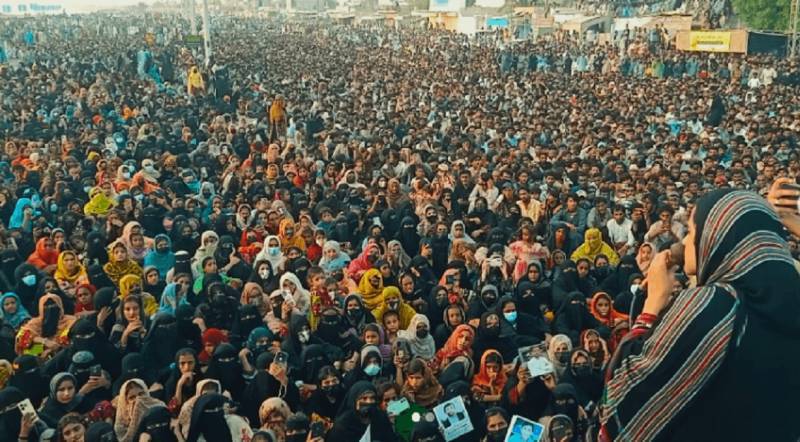
The tense situation in Gwadar, which has lasted for over a week before and since the Baloch national gathering (Baloch Raji Muchi), clearly demonstrates the state's inability to deal with the country's status quo.
To exert its control, the government has suspended communication systems, including road, networking, and telecommunication services, along with basic facilities such as food and health services, in the Gwadar district for over 10 days. Similar conditions have been extended to the districts of Kech and Panjgur in the Makran division.
As the people reel, state institutions appear reluctant to move towards a negotiated settlement with protesters of the Baloch Yakjehti Committee (BYC), who converted their protest into a long sit-in against human rights abuses in general and the crackdown on the participants of the Baloch Raji Muchi in Gwadar and in other parts of the province leading to and since the protest in which multiple people were reportedly killed or injured.
Descent into chaos
In late June, the BYC had announced that a month on, they would stage a one-day protest in Gwadar against human rights violations in Balochistan, including enforced disappearances, economic backwardness, ending local death squads and so forth; the state reacted in violence.
On July 26, just two days before the planned protest, the government responded by shutting down internet services across the Makran division. The very next day, the mobile networks became unavailable. Finally, on the day of the event, roads leading to Gwadar were blocked at various points, including in Quetta and Kech. Law enforcement agencies used force to prevent marchers from travelling to Gwadar. In ensuring clashes, a protester was killed in Mastung, while another at Kech's Talaar checkpoint. But by then, the leaders of BYC had already reached the port city, having made the journey a day earlier and addressed a large gathering in Gwadar on July 28.
The state institutions then used violence to disperse the event in Gwadar as well. But the use of baton-charges, tear gas shells and arrests only made it harder for the state to balance the status quo. Using such force at an event with a large public involvement further fuels the ongoing Baloch insurgency. If peaceful politics and events are put beyond the reach of Baloch, the only way to have your voice heard, especially for the youth, becomes the use of violence.
After such violence, the BYC called for wider protests and sit-ins across the province. The state responded by increasing arrests in Quetta, Turbat, Gwadar, Karachi, and other cities. Incidents of firing did not end either. A young student was reportedly killed in Nushki during a rally in support of the Gwadar protesters.
The situation has not been helped after media personnel across the country were largely discouraged from covering the Baloch march and human rights abuses. The shutdown of telecommunication networks made any attempts to cover even harder. Those who did raise their voice for the Baloch during these unwanted events were subject to arrests and threats.
Sham negotiations
This is not to say the state did not realise its mistake and attempted to make some amends. It sent negotiation teams to Gwadar and Turbat, led by the Makran Commissioner. In Turbat, Balochistan Assembly members Zahoor Buledi and Asghar Rind were part of the negotiation team working as mediators between the protesters and the state. While some points were agreed upon with the divisional commissioner, the parliamentarians, though, eventually raised their hands in helplessness. The series of peaceful negotiations was still ongoing when violence disrupted it. The negotiations had been welcomed by the BYC, but they were not accepted by superiors in state institutions.
From what has happened thus far, state institutions appear negligent in ensuring peaceful talks succeed. For the past seven decades, Balochistan has faced the same negligence from the centre, directly contributing to the situation there today. Even though all the demands put forward by BYC - of registering FIRs of those participants killed or wounded, releasing arrested participants, dropping charges against protest participants, not harassing participants, reopening roads, and restoring internet services - are constitutional, and within the state's framework, the state appears unwilling to commit to them.
With what is happening now in Balochistan shows that the province is treated as a mere colony of the state. The people there are treated as second-class citizens, and asking for basic human, fundamental and constitutional rights is tantamount to terrorism. When oppression becomes a state priority, resistance becomes an obligation.

